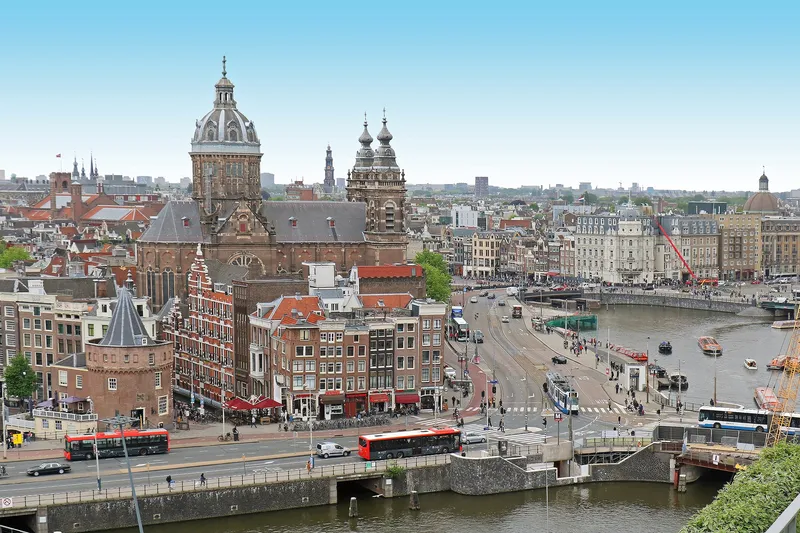England’s least car dependent city, Nottingham, is to further develop its public transport system with integrated ticketing solutions from Germany-headquartered ITS provider INIT, which is to supply systems for the town’s bus and tram network. With more than 40 million customer journeys per year, Nottingham’s independent bus operator Trent Barton was already successfully using INIT’s integrated ticketing solution comprising of Electronic Ticketing Machines (ETM), validators and Mango smartcards. Passengers
November 23, 2012
Read time: 2 mins
England’s least car dependent city, Nottingham, is to further develop its public transport system with integrated ticketing solutions from Germany-headquartered ITS provider 511 INIT, which is to supply systems for the town’s bus and tram network.
With more than 40 million customer journeys per year, Nottingham’s independent bus operator Trent Barton was already successfully using INIT’s integrated ticketing solution comprising of Electronic Ticketing Machines (ETM), validators and Mango smartcards. Passengers can use their Mango cards as an alternative to paper tickets and cash transactions by simply waving their card at the validator for the system to automatically calculate the best fare to be charged.
The scheme is to be enhanced by a further order for INIT’s latest ITSO certified ETM EVENDpc, which will provide the capability for the bus operator to participate in the Greater Nottingham Real Time Passenger Information System.
In addition, an order from tram operator, Tramlink, means that passengers using the town’s tram network will soon be able to use Mango cards, which can be topped up via cash or chip and pin debit/credit cards on the self service ticketing vending machines located on platform, and used as an alternative to paper tickets.
INIT is providing the software for data exchange and real-time reporting as well as 204 terminals/validators and 118 self service ticket vending machines at the Tramlink stops. An initial phase will see the equipping of the existing NET line 1 then NET lines 2 and 3, once opened. INIT will act as supplier and installer for Taylor Woodrow, part of the joint venture appointed constructor for the Nottingham tram extensions.
“The new major project in Nottingham permits us to expand our market position in the area of e-ticketing in Great Britain. Additional follow-up orders for our solutions are also emerging in the region”, said INIT Chief Sales Officer Dr Jürgen Greschner when the contract was awarded. “Our ticketing solutions can be easily expanded to an integrated Intelligent Transportation System solution for public transportation through for example facilitating real-time information for passengers regarding bus, tram and train departures/arrivals.”
With more than 40 million customer journeys per year, Nottingham’s independent bus operator Trent Barton was already successfully using INIT’s integrated ticketing solution comprising of Electronic Ticketing Machines (ETM), validators and Mango smartcards. Passengers can use their Mango cards as an alternative to paper tickets and cash transactions by simply waving their card at the validator for the system to automatically calculate the best fare to be charged.
The scheme is to be enhanced by a further order for INIT’s latest ITSO certified ETM EVENDpc, which will provide the capability for the bus operator to participate in the Greater Nottingham Real Time Passenger Information System.
In addition, an order from tram operator, Tramlink, means that passengers using the town’s tram network will soon be able to use Mango cards, which can be topped up via cash or chip and pin debit/credit cards on the self service ticketing vending machines located on platform, and used as an alternative to paper tickets.
INIT is providing the software for data exchange and real-time reporting as well as 204 terminals/validators and 118 self service ticket vending machines at the Tramlink stops. An initial phase will see the equipping of the existing NET line 1 then NET lines 2 and 3, once opened. INIT will act as supplier and installer for Taylor Woodrow, part of the joint venture appointed constructor for the Nottingham tram extensions.
“The new major project in Nottingham permits us to expand our market position in the area of e-ticketing in Great Britain. Additional follow-up orders for our solutions are also emerging in the region”, said INIT Chief Sales Officer Dr Jürgen Greschner when the contract was awarded. “Our ticketing solutions can be easily expanded to an integrated Intelligent Transportation System solution for public transportation through for example facilitating real-time information for passengers regarding bus, tram and train departures/arrivals.”









